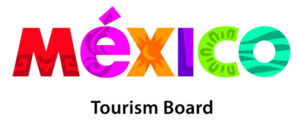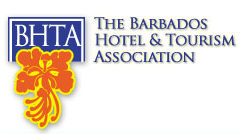 Written by Jaxx Swadi, WPICC, GWIC – Creative Director of One Sweet Day Wedding & Event Coordination
Written by Jaxx Swadi, WPICC, GWIC – Creative Director of One Sweet Day Wedding & Event Coordination
See what I did there? No, it isn’t a spelling error. The word is intentionally incorrect. The topic of discussion for today – How to be an Assistant, and more importantly how to TREAT your assistants.
With 2013 winding down to an abrupt close (I am really not sure where the year went!), I wanted to touch on some things I have learned over the four years I have been doing weddings. Both from personal experience, observation and information that has been shared with me along the way.
Now, let’s be clear. This is whether you are a paid assistant OR a volunteer. The information isn’t applicable to one over the other.
I have had the opportunity to be both a volunteer and a paid assistant in the time I have been doing weddings. I have also had many assistants over the years, and was lucky enough to have the chance to mentor some of them. An honour I take VERY seriously.
Here’s what I have learned:
As an assistant, you should (again, paid or volunteer):
- Always, always, always….sign a contract. This protects both you and the planner hiring you. You have all of the expectations out on the table in black and white. The where, what, why, how’s and who’s. Where is the wedding taking place? What is the compensation? How should I dress? Who are the couple?
- You should always have a copy of the itinerary. It not only gives you the play by play of what you can expect on the day, but it should also outline what duties are expected of you as an assistant. If it doesn’t…it SHOULD! Don’t hesitate to ask your lead planner what is expected of you. Honestly? Every wedding is different, every couple has different expectations of how they want things done. You should never be expected to assume what your duties should be. Nor do you want to be repeating tasks that have already been completed.
- You should always be fed if you are staying during the mealtime. Now, I have personally done weddings where I can’t eat the food they have. Most of the time, you will find that venues are quite accommodating if they know in advance. However, when there are times that you are not offered a meal as a team (and believe me, this has happened as well) – it is the responsibility of the planner who hired you to ensure you are fed, so you can better complete the duties in store for you.
- Take initiative. Look around, see what needs to get done. If you have something you aren’t sure of, your lead planner should always make themselves approachable so you can ask if A, B & C can be done in such and such a way. I know I personally appreciate an extra pair of eyes looking around at the finer details – because I’m busy too!
- Dress professionally. You would think this is a given, but I have had assistants show up in less than appropriate attire. Put your stiletto heels, leopard print pants and heavy makeup away. They have no place in a place of worship or a wedding reception. For the most part, it is safe to assume a pant suit with a professional blouse is best. If you are unsure, ask your lead planner for guidance. One thing is for sure, if you don’t have one – invest in a black blazer. It’s definitely a constant go to item.
- Keep the personal talk to a minimum, when there are things that need to get done. There is a time and a place to talk about your sick cat, boyfriend troubles, BFF, etc. When you are swept off of your feet busy preparing for a ceremony or reception – it is clearly not the forum for it. During downtime is best.
Leads! How to TREAT your assistants:
- Again, I reiterate the above. Provide a contract for your assistants. It’s to protect you both so there are no uncertainties after the fact. Friendship and business are separate. You don’t want a strained relationship afterwards if there is any confusion about the finer details. Trust me!
- Provide your assistant with their duties. Whether it’s in your itinerary, in the contract, or on a separate sheet, it doesn’t matter! You can’t expect your assistant/s to play guessing games with YOUR clients wedding. It isn’t fair to you, your assistant/s, and most importantly – your client. Put everything out on the table so there are no misunderstandings.
- FEED THEM!!! Make sure they are able to eat the meal being provided. For whatever reason, allergies, illness, whatever – they may not be able to. But you are still obligated to make sure they eat so they can function well! I don’t care if you send them out for McDonalds or Subway, it doesn’t have to be fine dining. But they must have something to eat, and a place to eat it.
- Be a mentor. You are the lead! In many cases, the assistants working with you are new to the industry. They are looking to you for guidance and support. Don’t go on a power trip because you ‘re in charge. Assistants have taken time away from their usual lives, to help you, and learn from you. They left their families and/or responsibilities at home to spend 10 hours with you. So don’t make them regret it, or resent the industry or the people in it. There’s nothing worse than when I have been an assistant at a wedding, and someone newer to the industry comes to ME for advice and support because the lead has made themselves unapproachable. NOT COOL! You aren’t invincible, trust me…and for God’s sake, don’t gossip about them. I’ve seen it happen, and it’s happened to me. Word travels fast, and not in a good way.
- Respect your assistants! They are your team. They are the reason that things will go smoothly or terribly at your event. Introduce them to your vendors – in your itinerary email, and in person on the day. It isn’t a very nice feeling to be treated as though you are ”just the help”, and have random strangers that you have to approach and introduce yourself to because you as the lead didn’t have the courtesy to do it.
- Show them appreciation! Thank you goes a LONG way. After a rehearsal dinner, or the night before a wedding, I always take my team out for dinner. It’s an opportunity for everyone to meet and get comfortable with each other, and a way to discuss any items the assistants need to be aware of that could come up on the day of. It’s also a chance to get to know each other, unwind and create new friendships and relationships. At the very least, give them a thank you card, a small gift or token of appreciation. This is something I always make a point of doing, because it is ME that can make or break their impression of this industry and the people in it.
- Stand by your word. If you are paying them, make sure you stand by your agreement. I always have an EMT sent out the day after the wedding. If you promised recommendation letters or photos, stay on top of making that happen. We all know that some photos take longer than others to get back to us, but it’s up to us to stay on top of it AND let our assistants know that we haven’t forgotten about them, and are still waiting on things.
- If you have had a great volunteer assistant, give them a paid job in the future. Nothing says thank you and great job, like asking them to return to work for you in a paid capacity.
I hope planners new and veteran, found this blog informative and helpful. I think given what we’ve all experienced, it felt like it was about time that someone spelled it all out.
Wishing you all much success and a very prosperous 2014!







very very useful tips!